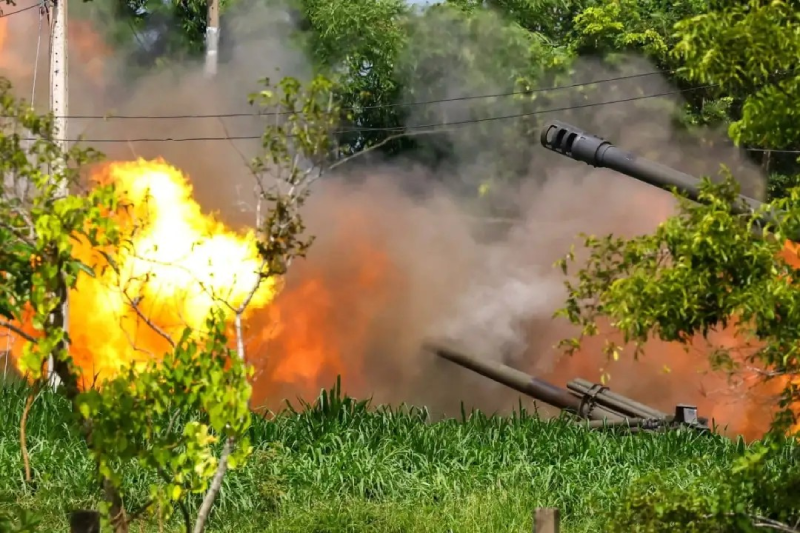Liu Zongyi Interviewed by South China Morning Post
Liu Zongy source:South China Morning Post
source:South China Morning Post
China will continue to play a “constructive role” in helping to ease regional tensions, Foreign Minister Wang Yi said on Friday, as Thai and Cambodian troops exchanged fire on their border for a second day.
In talks with Asean secretary general Kao Kim Hourn in Beijing, Wang blamed Western colonisation for the conflict.
“The recent conflict and casualties on the Cambodia-Thailand border are heartbreaking and concerning. The issue stems from the enduring damage caused by Western colonisers, and it now requires a calm and proper resolution,” he told Kao, who is from Cambodia.
He said China supported efforts by the Association of Southeast Asian Nations to mediate “and encourages the use of dialogue, consultation, and political solutions in line with the Asean way”.
As a friendly neighbour to both nations, China would maintain a “fair and impartial” position and remain engaged in efforts to de-escalate the situation, he said.
China, the US and Malaysia – this year’s Asean host – have offered to enable dialogue, but Thailand has declined mediation offers from third countries, telling Reuters on Friday that its preference was for bilateral talks.
“I don’t think we need any mediation from a third country yet,” Thai foreign ministry spokesman Nikorndej Balankura said.
However, Thailand is open to its fellow Asean members supporting a return to “constructive bilateral negotiation”, according to the ministry.
In an interview in New York on Thursday with Chinese state broadcaster CCTV, Chinese ambassador to the United Nations Fu Cong said Beijing was helping to mediate in the dispute.
“China is playing a mediation role to facilitate communication between the two sides, and hopes the situation will stabilise as soon as possible,” Fu said.
Fu also urged the two nations to “exercise restraint” and “stabilise the situation”.
“Asean has a long-standing tradition of resolving differences through peaceful means, and we hope that peace will once again prevail in this case.”
Thai and Cambodian armies clashed along their shared border on Thursday, in a major escalation that included artillery fire and rockets. The conflict has led to multiple deaths within 24 hours, most of whom are believed to be civilians.
Thailand and Cambodia have long-standing border disputes, mainly over contested areas near ancient temples. The sudden clash is believed to be related to a landmine explosion in a contested area on Wednesday that wounded five Thai soldiers.
Thailand accused Cambodia of laying new landmines but Cambodia rejected the charge, saying the device might be a leftover from its civil war, which ended in 1975.
Liu Zongyi, a senior fellow with the Shanghai Institutes for International Studies, said the conflict was likely to remain contained, with both China and Asean prioritising regional stability.
Earlier this month, Wang held talks with his Thai and Cambodian counterparts at an Asean-China meeting in Kuala Lumpur.
In his meeting with Thai counterpart Maris Sangiampongsa, Wang expressed Beijing’s hope that both sides would act with “goodwill towards each other” and “properly resolve the issue through friendly dialogue and consultation”.
Wang added that China aimed to “play a constructive role” in resolving the conflict.
In a separate discussion with Cambodian deputy prime minister Prak Sokhonn, who also serves as foreign minister, Wang emphasised that China would “maintain an impartial, fair and just stance” in addressing “the needs of the parties concerned”.
“The issue will eventually be solved through diplomacy … as both Thailand and Cambodia are members of Asean, both China and Asean will play a very proactive role in mediating this issue,” Liu said.
According to Liu, there are advantages in Beijing taking a mediation role because the country is close to both Bangkok and Phnom Penh.
On Thursday, Chinese foreign ministry spokesman Guo Jiakun said Beijing would “promote peace talks in its own way”, urging the two nations to “resolve differences appropriately”.
“We are deeply concerned about the current developments and hope that both sides will resolve the issue through dialogue and consultation,” he said. “China upholds a fair and impartial stance and has been and will continue to promote peace talks in its own way.”
Amid the escalating conflict, China’s embassies in both Thailand and Cambodia have issued advisories warning its citizens not to approach the border.
According to Thailand’s defence ministry, there have been exchanges of fire in at least six areas along the border since Thursday. The conflict continued on Friday, the Cambodian army said.
Several media outlets reported that Thailand had conducted air strikes using the US-made F-16 fighter jet.
Although Thailand is a treaty ally of the United States, Bangkok has bought an increasing number of weapons in recent years from China, which maintains close relations with both Thailand and Cambodia on the defence front.
According to the Stockholm International Peace Research Institute, Thailand is the third largest buyer of arms from China, following Pakistan and Serbia, with Chinese weapons accounting for around 44 per cent of its major military imports in recent years.
Cambodia is not only a major buyer of Chinese weapons, the two countries have also forged strong defence ties. They have held several military exercises since 2018, such as the Golden Dragon drills, and Phnom Penh has also reportedly given China access to the Ream Naval Base.


